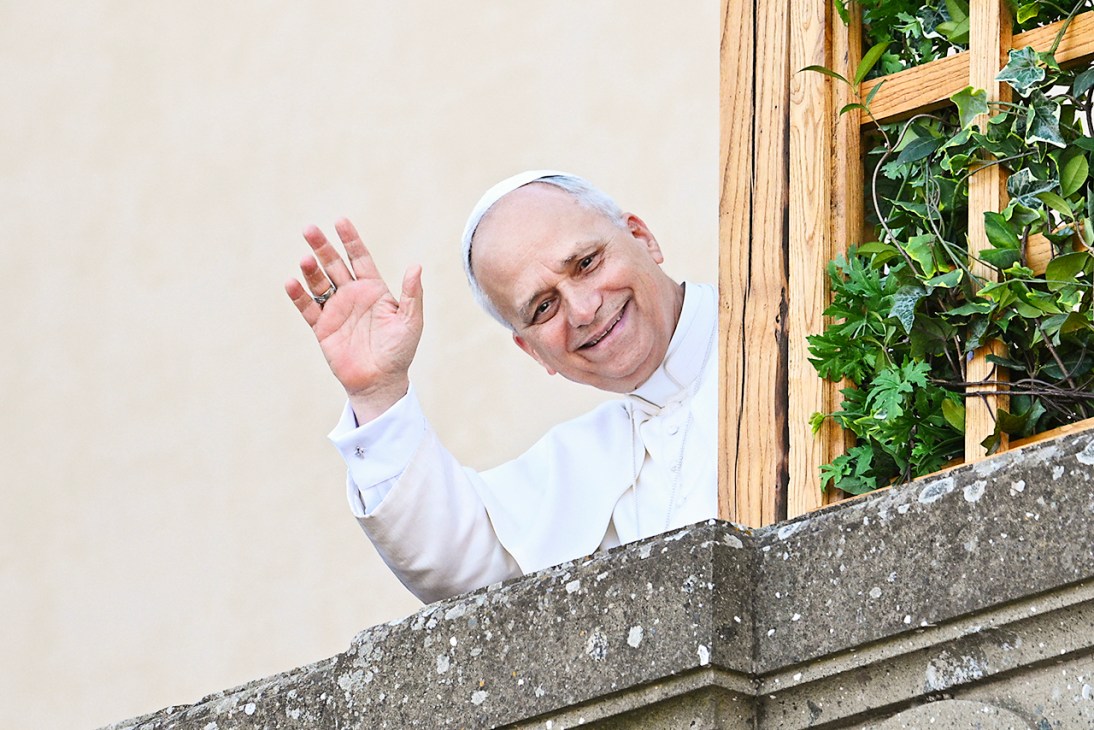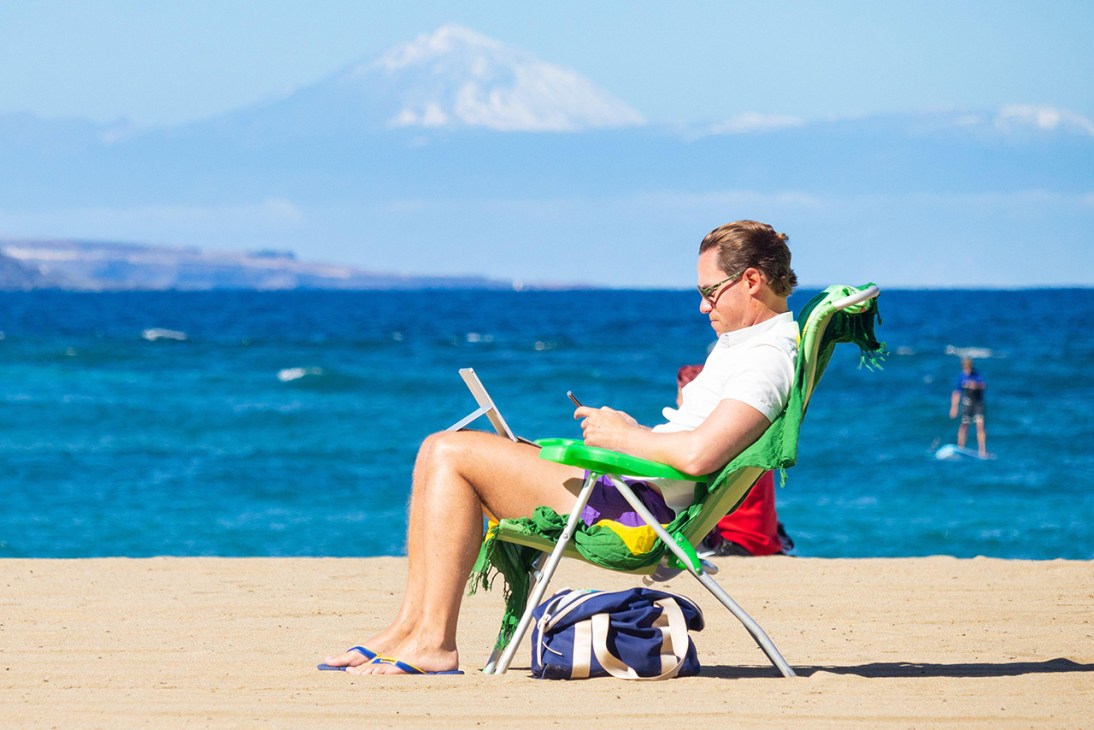Pope Leo XIV has quit the heat of the Vatican and taken up residence in Castel Gandolfo, a papal property that sits atop a hill southeast of the city, with a calming view of Lake Albano. He’ll be there until 20 July and has also booked himself in for a long weekend in August.

Leo’s departure from the sultry Holy See has made the news because his predecessor, Pope Francis, was not a Gandolfo man and declined to spend his summers there (indeed, he displayed little interest in most of the potential perks of the job, eschewing much of the ceremonial regalia and even moving out of the papal apartments in Vatican City). Unsurprisingly, the locals are delighted that Leo has embraced this summer pope-on-the-move tradition that dates back to 1626, even if there is still no official Leo trinketry for them to sell in the souvenir shops.
Leo, aka Sporty Pope, is expected to fit in some tennis and find a spot of downtime. But he’s unlikely to have an out-of-office (OOO) message set on his laptop – the American Pope reportedly has a habit of staying up to 03.00 sending messages on Whatsapp. Plus, he has his first encyclical to bash out.
And in this, the Pope reveals himself to be a man of our times. For while he might be more associated with Holy Weeks, he is, like many of us, also a paid-up practitioner of “holi-work”, that limbo in which you are definitely not in the office but have also not been able to – or, in some sad cases, even wanted to – fully sever the umbilical cord to the day job (despite the fact that you are suddenly reading your work correspondence while dressed in pink swim shorts and little else – a look that even our most fashion-forward staff couldn’t get away with at Midori House).

In recent years, many countries have passed so-called “right-to-disconnect” laws to ensure that employees – even popes, I imagine – can ignore work-related emails while on their holidays. But for many folks, trying to totally disconnect, to put out of their minds what might be lurking in their ever-expanding inbox, is more anxiety-inducing than giving it a daily scrub-down.
For many years, Monocle staff didn’t set up OOO messages. In the early days, when we were a fledgling brand with a tiny team, we worried about a commercial contact going elsewhere, a reporter with a great story not waiting around for our response. Now fully embraced, OOO notes have had no detrimental effects but their use is still a little haphazard because of people like me.
This weekend I leave the city for a couple of weeks. While there’s no castle involved or encyclical to write, I know that the line between my work and private lives blurred long ago and that I will also definitely want to file my column, check my mail, be a little on. In part, it’s because I remember a time before all of this, when I would return from long travels wondering whether my company was still afloat and my job still there.
Perhaps that’s the important bit. Vacations should be when you decide what makes the perfect cocktail of your time – is it a zero-per-cent-work concoction or something a little trickier to mix just right, a “holi-work special”? And here’s a line that a Protestant rarely types: I’m with the Pope on this (though I imagine that I might be having more real cocktails than him). Some writing, some downtime and some exercise will be just the ticket. But I can’t go along with Whatsapping in the middle of the night. Isn’t there a nun who can take away his phone at bedtime?
Update 8 May: Robert Prevost has been announced as the new (and first American) Pope.
With the papal conclave that will select the next pontiff under way, all eyes are on nations with large Catholic populations and the cardinals who could succeed the late Pope Francis. Here we get the view from the Philippines, Ghana, Brazil and Italy, four countries where the next Vicar of Christ could potentially come from.
The Philippines
The liberal pick: Cardinal Luis Antonio Tagle
By Richard Heydarian, academic and columnist
As many as six million Filipinos showed up for Pope Francis’s visit to the Philippines in 2015, a world record that reflects the profundity of the country’s devotion to Catholicism. This is one of the world’s most devout nations and there’s an informal public understanding among Catholics here that it would be disrespectful to talk about succession during the nine-day grieving period for Pope Francis. Deep down, however, many Filipinos hope that the next pontiff will bring the same spirit of openness and inclusiveness to the Vatican. There are three Filipino cardinals heading into the conclave; among them, Cardinal Luis Antonio Tagle is seen as the most progressive. He has made strong statements about discrimination and prejudice against the LGBTQ community and those who are going through divorce. But during my visit to the Vatican, I sensed that Italy’s Pietro Parolin is the favourite among cardinals who are invested in the continuity of Pope Francis’s legacy. Still, history tells us that early favourites are not necessarily the one who is chosen.
Ghana
The foreign-affairs pick: Cardinal Peter Turkson
By Joseph Appiah-Dolphyne, journalist and press officer
Pope Francis was revered among Catholics, looked up to as an inspiration and credited with growing the faith in Ghana and across Africa. While it’s right to say that Ghana’s Cardinal Peter Turkson would be a more conservative choice, humility is one trait that he shares with the late Argentine. Born one of 10 children in the country’s Western Region, Turkson grew up in a far-from-affluent family. Before becoming a cardinal, he cut his diplomatic teeth as chairman of Ghana’s National Peace Council, an independent advisory committee. After being promoted to the cardinalate, he served as the president of the Pontifical Council for Justice and Peace until 2017 and was sent as an envoy to South Sudan by Pope Francis to aid peace negotiations. Electing the first African pontiff would be a show of faith in the continent. In practical terms, Turkson could also continue the late pope’s diplomatic push.
Brazil
The popularity pick: Cardinal Sérgio da Rocha
By Fernando Augusto Pacheco, Monocle’s senior foreign correspondent
There are more Catholics in Brazil than in any other country. The Church’s imagery and expressions are part of daily life here. Despite this, none of the seven Brazilian cardinals in the conclave are favoured to ascend to the Chair of Saint Peter. Still, the Catholic Church needs Brazil and should certainly consider the popular Cardinal Sérgio da Rocha for the papacy. While one priority for the next pontiff will be to grow the faith in Africa and Asia, an effort to reconnect with Brazilians and Latin America as a whole wouldn’t go amiss. I would wager that, as with Pope Francis, the new Bishop of Rome’s first international trip will take him to the streets of Copacabana.
Italy
The local pick: Cardinal Matteo Zuppi (and more)
By Juliet Linley, journalist and former Vatican correspondent
It has been 47 years since we’ve had an Italian pope and there are several candidates on the cards. When I was in Rome for Pope Francis’s funeral, Cardinal Matteo Zuppi was the popular choice among pilgrims. The progressive cardinal and current Archbishop of Bologna is known for his diplomatic skills and missionary work. He was closely involved with peace-making efforts in Mozambique in the 1990s and recently facilitated prisoner exchanges between Russia and Ukraine.
Cardinal Pietro Parolin is also among the candidates. As Pope Francis’s number two, he will know most of the electors personally, which will give him an edge in the conclave. From a theological perspective, he is neither too traditional nor contemporary, though he opposes same-sex marriage and euthanasia. He might be undone by a controversial secret pact that he arranged between the Vatican and China in 2018. He’s also not quite as charismatic as Francis: diplomatic but maybe a bit too vanilla.
The other top Italian contender is Cardinal Pierbattista Pizzaballa, whose name (“dancing pizza”) has attracted attention from people who wouldn’t usually be pope-watchers. Like Francis, he’s open, diplomatic and knows his geopolitics. As Jerusalem’s first cardinal, he has been based in the Middle East for 35 years, supporting interfaith dialogue between Muslims, Jews and Christians, and advocating for peace during the Gaza conflict.
Hear more views from each nation by checking out our Monocle Radio series on The Briefing throughout the papal conclave.



